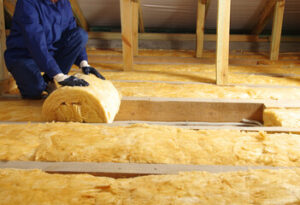Santa Rosa Real Estate Agents help buyers and sellers navigate the process of buying or selling a property. They also negotiate transactions on behalf of their clients to secure favorable outcomes.

Research Realtors in your area by conducting online searches and asking for recommendations from friends and family members. Once you have a shortlist, interview each agent to determine which one best fits your needs.
If you’re thinking about buying or selling a home, a real estate agent can help you navigate the process and make it as smooth as possible. Real estate agents can also provide valuable information on the local housing market, including trends and pricing. This can help you decide whether it’s a good time to buy or sell, as well as set a reasonable asking price for your property.
When selecting a real estate agent, consider their experience and area of expertise. Ask for referrals from friends and family, and check online reviews. Look for specialized designations, such as Certified Residential Specialist (CRS), Senior Real Estate Specialist (SRES), Seller Representative Specialist (SRS), or Military Relocation Professional (MRP). This can indicate an agent’s level of expertise in working with buyers and sellers with specific needs and priorities.
Homebuyers rely on real estate agents to find suitable properties, negotiate deals, and close the deal. Hiring an agent can reduce the risk of overpaying for a home or overlooking red flags that could make a home a bad investment.
For home sellers, a real estate agent can help you stage your property for maximum appeal and attract qualified buyers. This can include cleaning the house top to bottom and highlighting its features. It may also involve recommending home improvements that will maximize your return on investment or boost the home’s value.
A real estate agent can also help you sort through multiple offers, which can be complicated by mortgage loans, inspections, and other contingencies. They can help you evaluate the pros and cons of each offer, advise on how to counter-offer, and negotiate a favorable deal.
Buying or selling a home is a big decision and a significant financial commitment. Hiring a real estate agent can ensure you’re making the best choice for your circumstances, and save you time and money in the long run. Just as Harry Potter had Dumbledore and Luke Skywalker had Yoda, you need an experienced guide to help you through the homebuying or selling process.
They Help You Find a Home
Real estate agents have a strong grasp of the real estate market and can assist buyers with finding properties that are within their price range. They also help buyers with the homebuying process by conducting property searches, scheduling appointments to tour homes, and assisting with paperwork and negotiations. Depending on their experience and qualifications, real estate agents may specialize in specific property types or areas.
One of the most important things a real estate agent does is help their clients find their dream home. This is especially important for first-time homebuyers who have little to no knowledge of the local real estate market. Real estate agents can make recommendations based on their past experience and current market trends.
They can help you narrow down your search by looking at homes in your price range and evaluating neighborhood demographics to find the best fit for you. They can also give you tips for negotiating with sellers and other agents. They are a valuable resource for homebuyers who need help navigating the complex and stressful home buying process.
A good real estate agent can help you avoid common mistakes when purchasing a home. For example, without a real estate agent, you could be more likely to overpay for a property or overlook red flags that might indicate a problem like mold or foundation issues. A real estate agent can also help you with the mortgage process by recommending lenders and helping you with completing the necessary paperwork.
During the Covid-19 pandemic, real estate agents were even more critical to homebuyers. With low inventory and high prices, homebuyers were struggling to find the right home. Real estate agents helped by posting homes on the Multiple Listing Service (MLS) and facilitating virtual tours for out-of-towners. They also assisted with coordinating and facilitating the home inspections, appraisals, title searches, and other due diligence activities.
If you’re considering working with a real estate agent, it’s a good idea to ask friends and family for referrals. Then, take the time to meet with each agent and ask questions about their experience and qualifications.
They Help You Negotiate
Real estate agents are trained to negotiate the best deal for their clients. This is important because buying and selling property can be very emotional, which can lead to miscommunication or even a breakdown in the negotiation process. Good negotiating skills can bring the transaction to a satisfying conclusion and save money for both parties.
When negotiating with a buyer, it’s important to understand their non-negotiables, which are factors they’re not willing to compromise on. This can be anything from the size of the home to the price point. If negotiations reach a point where these things are compromised, the agent may recommend backing out of the deal.
Buyers’ agents also help their clients make informed decisions during the negotiation process by performing research and analyzing market trends. They can also offer suggestions and advice to help their clients navigate the complexities of the transaction, such as suggesting an escalation clause in the contract that automatically increases the offer up to a specified amount if competing bids exist.
Some agents also help their clients save money on a home by advising them to include contingencies in the contract that allow them to back out of the deal if certain conditions are not met. For example, if a mortgage loan falls through or the home inspection reveals significant issues with the property, buyers may choose to cancel the transaction and move on to another property.
As part of their job, real estate agents have a network of colleagues they can consult for referrals and resources. This can include other real estate agents, mortgage brokers, home inspectors and bankers. They’re often involved in networking events and socializing with their peers to build relationships that can benefit them down the road.
Real estate agents can be very valuable assets in the homebuying and selling process, but finding a good one can be challenging. It’s a good idea to ask friends and family for recommendations or ask the agents of past clients what their experience was like. Ultimately, you want to find someone who will be patient and understanding while still being direct and confident during negotiations.
They Help You Close a Deal
Real estate agents help buyers and sellers buy or sell property, like homes, commercial properties (office buildings, stores), and land. They do this through property searches, providing home valuations, hosting or attending open houses, negotiating with buyers and sellers, drafting and reviewing real estate contracts, and conducting other related tasks. Some agents also join the National Association of Realtors(r) to further enhance their skills and credentials.
A good real estate agent or realtor will listen to you and take your preferences into account. They should also be able to answer your questions, and they should never try to push you to make a decision that goes against your wishes.
If you’re buying a property, your agent should know how to find properties that match your needs and guide you through the process step by step. They should also be familiar with local mortgage lenders and lenders’ requirements, and they can recommend the right mortgage lender for you. They may even be able to connect you with lenders who offer pre-approval, which can save you time and effort.
Likewise, if you’re selling your property, your real estate agent can provide you with advice about how to prepare your home for sale, how to set a competitive price, and what repairs or upgrades might be needed to get the best deal. They can also suggest home staging tips and help you create a marketing plan to attract potential buyers.
One of the most important things a real estate agent or realtor can do for you is help you close on a property. This includes coordinating meetings between you, the seller, and the buyer’s agent, helping you sign your documents, and walking you through the closing process.
It’s possible to work with a great real estate agent without being a member of the National Association of Realtors(r). However, if you want your experience to be as smooth as possible, it’s definitely worth working with an agent who is a member. It means they’ve completed the necessary courses and have passed a state exam to become a licensed real estate professional.
